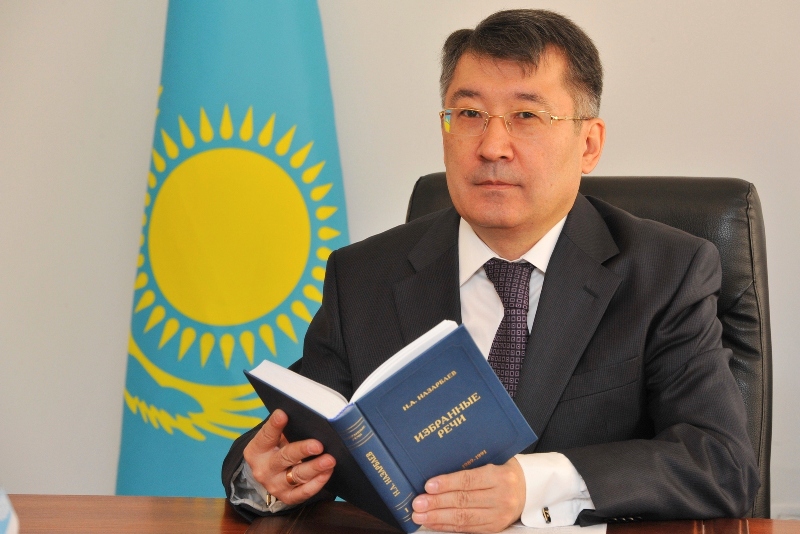The new economic policy, the principles and priorities of which are reflected in the Address of the President of the Republic of Kazakhstan Nursultan Nazarbayev to the people of Kazakhstan “Nurly Zhol, the Way to the Future”, aims to ensure accelerated growth of the economy and thus improve the well-being of our citizens and reinforce political stability in our country.

The President presented a detailed plan of infrastructural development of the country. “As international experience shows, the economic policy of a state undergoes certain reorientation under the conditions of a crisis. We need to support the industries that create the greatest multiplier effect on economic growth and employment improvement,” said the President.
Nursultan Nazarbayev emphasized the importance of working out specific projects within the outlined tasks. Members of our University can be directly involved in these activities, as S. Toraighyrov PSU ensures real integration of science and production and is widely known for being an innovation-oriented university. This can be examplified by a recent victory of Professor A.K. Karakayev in the national competition of innovative business plans called “Innovation Boost” which is held in order to identify breakthrough inventions and projects for the economic development of the country.
The President stressed the need for the transport, logistic, and industrial infrastructure development which involves construction of roads and housing for the people of Kazakhstan. In this regard, some projects in the field of cost-effective building materials production developed by S. Toraighyrov PSU academics gain particular relevance. For example, Candidate of Engineering Sciences, Professor Sh.K. Torpischev developed unique research projects devoted to production of uncemented masonry blocks, ready-mix concrete and raw mixtures for road topping. Implementation of these projects means introduction of environmentally friendly new-generation building materials that would meet international quality standards. Production of such high-quality building materials also solves the problem of technogenic wastes utilization. This allows for a significant reduction of the costs, as only local industrial wastes are used with no cement required.
N.A. Nazarbayev noted the special role of higher education institutions in implementation of the outlined tasks: “10 Universities responsible for ensuring the development of a close connection between science and industry and training high-quality specialists were chosen under the industrialization program. Up to 10 billion tenge will be allocated to these universities till 2017 in order to create a proper infrastructure there.”
The Ministry of Education and Science of the Republic of Kazakhstan chose S. Toraighyrov Pavlodar State University as the basic university in training highly qualified specialists in 4 sectors of the economy: power engineering, metallurgy, mechanical engineering and petrochemistry. The educational process in these fields will be based on new innovation-oriented educational programs developed by leading foreign partner universities from Sweden, Germany, Russia, Latvia, Czech Republic and Poland. The companies responsible for implementation of the State Program of Industrial and Innovative Development have already been chosen. These are Kompaniya Neftekhim LTD LLP, Kazakhstan Electrolysis Plant JSC, KSP Steel LLP, Casting LLP, Aksu Ferroalloy Plant (branch of Kazchrome TNС), Eurasian Energy Corporation JSC, Prommashkomplekt LLP, FormatMachCompany LLP, PPCP LLP, etc. Training sessions will be held with the use of new laboratory equipment and modern technology which will help students learn the latest innovations in the field of energy engineering, metallurgy, petrochemistry and mechanical engineering. The main feature of this type of training consists in its practical orientation. An integrated approach to teaching students will enable the company to get more qualified graduates who will have the necessary expertise to successfully work in the region.
Thus, a close cooperation between scientists and manufacturers will serve to enhance the processes of integration of science, education and industry. Investment in human capital, practical knowledge and skills will be among the top priorities, as the most valuable qualities of a modern specialist are the level of education, professionalism, creativity and ability to learn. Owing to this program, the labor market and the employers will be satisfied with the graduates, and universities will be recognized as reliable partners.






